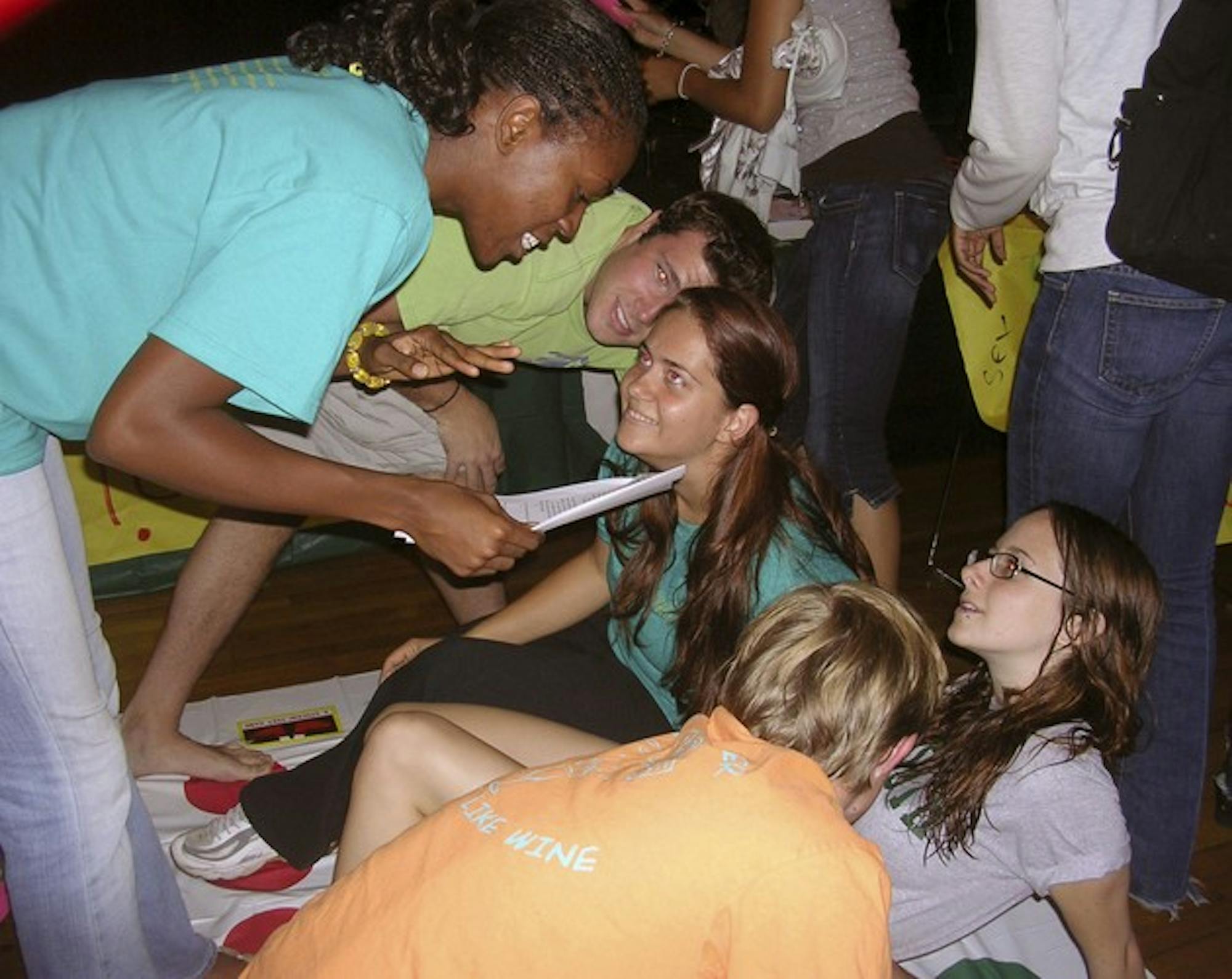The event, which was relocated from Massachusetts Row due to impending rain, is meant to spread campus awareness of issues surrounding consensual sex, according to Xenia Markowitt, director of the Center for Women and Gender Studies.
"Consent is an important topic to address for Dartmouth students, as well as anyone else, because there is a pandemic of sexual violence all over the world," Markowitt said.
The CWG organized the two-hour event, which featured booths and activities run by various College and community organizations. Most stalls included interactive contests in which students could earn a sticker for participation. This year, Consent Day attendees were required to complete at least five of these activities and sign a sexual consent pledge in order to receive a teal T-shirt reading "Consensual sex is hot."
"In the past, all you had to do was sign a pledge to get a T-shirt," Elizabeth Bruyere '10 said. "Now you have to go to a lot of events, and so you are learning about consensual sex in the process."
Bruyere volunteered at a booth sponsored by Delta Delta Delta sorority and Sigma Nu fraternity at which students who correctly answered a question about consensual sex were allowed to throw a pie at a member of Sig Nu.
Each event was designed to educate students about the role of consent and sexual activity. "Consensual Twister," sponsored by Alpha Xi Delta sorority and the Afro-American Society, asked participants to identify whether consent had been provided in different scenarios. Before participating in the "Condom Dart Throw," students had to respond to true or false questions on topics ranging from the frequency with which males contemplate sex to the sexual habits of rats. The event was sponsored by Kappa Delta Epsilon sorority and DartHeart Inc., a non-profit organization that provides guidance for students with post-traumatic stress.
"I think it is a really effective way to get the information out there," Sarah Wengert '10, a member of the Consent Day committee and a sexual abuse peer advisor, said of the event. "[Consent Day] is a lot of fun, but it is also a lot of info."
Some activities turned out to be too ambitious for the fast-paced event and had to be restructured. Epsilon Kappa Theta sorority's "Consensual Candyland" took too long to play, Janel diBiccari '10, the organizer of the game, said. DiBiccari said she believed the event's success was rooted in its interactive approach.
"When people just come and talk, it's not fun," diBiccari said. "This is something students want to do."
Although the main topic of the event was sexual consent, participating groups such as Planned Parenthood and Sexual Abuse Awareness Program also advocated safe sex practices. Michelle de Sousa, SAAP Coordinator and self-proclaimed "condom fairy," passed out multi-colored condoms with wings strapped to her back.
"I just want people to be able to have fun, be safe and get consent before putting one of these on," de Sousa said.
The event culminated with the students' pledge to respect consent, de Sousa said.
"The T-shirt table was where it all came together," she said. "[Students] got to sign the pledge, and it was obvious they understood what the day was all about."
Planning for the event was headed by de Sousa and Megan Fallon, assistant director of the CWG.
It was the students on the planning committee, however, who made the event run smoothly, de Sousa said.
"They really were the go-getters and all had a real passion behind the cause," she said. "It wouldn't have gone so well if we didn't have such a consistent turnout."
Local sexual resource groups, including "A Community Resource Network," an organization that assists those living with HIV/AIDS or hepatitis C, were also involved in the event.
"Right now, HIV is spreading rapidly among teenagers and young adults," Whitney Struse, director of client services at ACORN, said. "It is important to let students know that it could affect any of them."




